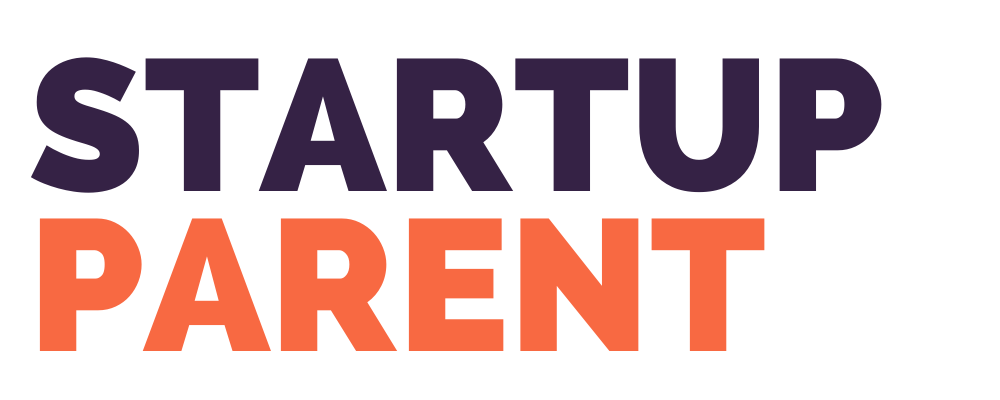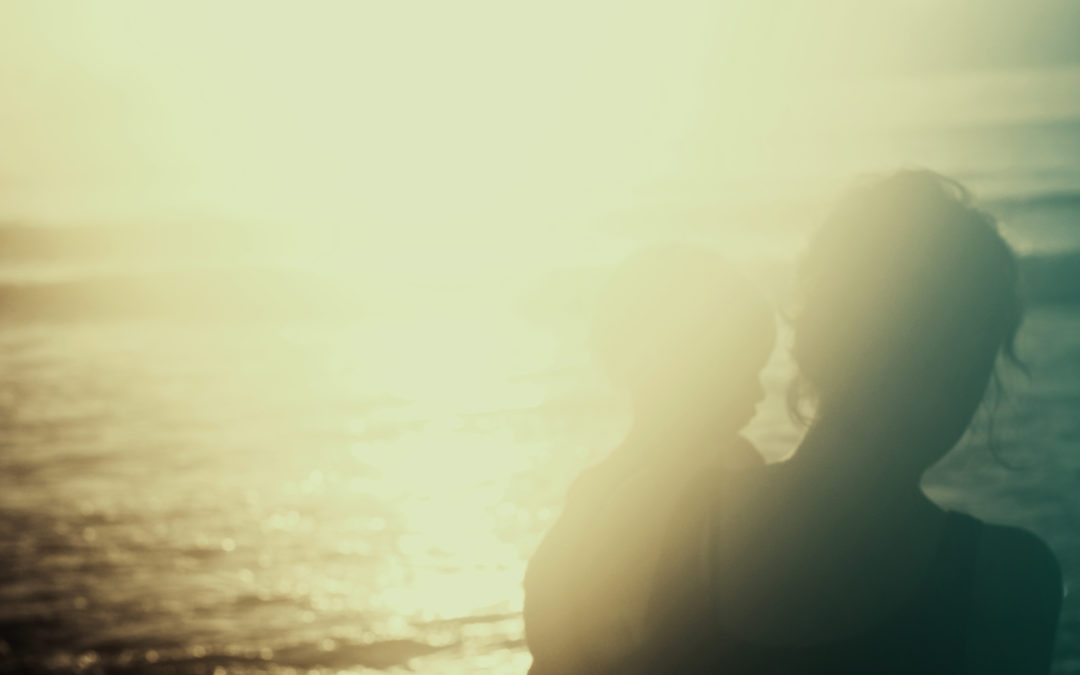I’ve been pregnant twice.
At different times, in different ways, and for different reasons, I lost both of those pregnancies.
The first loss—the surprise of which took my breath away—was momentarily healed by the second pregnancy. All the pain I’d briefly felt and then gladly stuffed away resurfaced after the second loss. The artifice of my ok-ness shattered under the weight of my double griefs and spiraled me into a primal depression.
The deepest, most constant complaint and symptom that I discussed with my therapist was this: I feel totally, completely alone.
My sisters, who loved me dearly, who’d guided and supported me through my biggest struggles in the past, had no experience with pregnancy loss. In fact, they both seemed to be the type that sneezed and then got pregnant. Every year they had one—or even two—perfect babies.
My husband, so supportive and loving, had a different experience of those losses. To a certain extent those babies were still hypothetical for him. Both losses broke his heart; he grieved their little bodies and the hopes we shared for them. But it was different. We both agree on this.
For me, these babies were the reason behind every meal I ate, every drink (of coffee, of wine, of sugary juices) that I didn’t have, every bit of exercise I forced myself to do between spurts of vomiting for those combined 21 weeks. My life, my body, my dreams were already hopelessly entangled with the little blueberry in my belly.
Or thought of this way: there are bits of the DNA of both of these beings floating around in me, evidence of these two potential babies growing in my own body. Can there be firmer scientific proof of enmeshment?
In the trenches, together
I had only one close friend who’d told me about her pregnancy loss a few months prior to mine. We would call each other and cry and speak in hushed tones about what was happening to our bodies, our hormones, our emotions. We’d send poop, knife, and crying-face emoji filled texts as we took medications, had procedures, cramped, and bled.
And yet there is only so much my husband or friend could do to soothe me; only so much one grieving person can offer another. You cannot just hold onto one another in a storm. Without any arms paddling towards shore, you both begin to sink.
Eventually, I did what lonely people do in the 21st century: I went online. I found a group of women like me, who’d loved and lost, who were desperately hoping to escape the madness of our shared invisible griefs. We understood each other, checked in with each other, could vent our anger and fear and know that we’d be met with “likes” and comments of “Oh honey, I know exactly how you feel…” by someone who did know how we felt.
But still. I could have used a hug, a familiar face to walk me through the initiation, someone to stop by my house, to invite me over, to physically buoy and direct me to shore. I didn’t have that.

What is pregnancy loss?
Pregnancy loss is a broad term that encompasses the loss of life of any embryo, fetus, or unborn baby. The most common type of pregnancy loss is miscarriage, affecting up to 50% of all pregnancies and 10-25% of all clinically confirmed pregnancies. (The reason for that discrepancy is that oftentimes chemical pregnancies or the very early miscarriage of an embryo occurs before the mother knows she’s pregnant). And these numbers don’t include those who choose to end a pregnancy for an even wider range of personal reasons. Put another way, every other woman you know who has been pregnant has likely experienced some form of pregnancy loss.
However, there are a number of less common, though still devastatingly frequent, types of loss: stillbirth, blighted ovum, ectopic pregnancy, and termination for medical reasons, among them. All together, up to a third of all pregnancies end in loss.
Or in other words: this is an incredibly common experience.
So why aren’t we talking about it?
Not alone: a model of support
There are models for what it looks like to support each other, and to help each other through the uncomfortable and the unknown. My life as an entrepreneur and writer informs this.
I remember when my company, New Minimalism, was in it’s very early stages. My business partner and I had a simple Weebly website, maybe a dozen clients, and were each working several side jobs as we attempted to get New Minimalism off the ground. Another woman, Laura, reached out to me to introduce herself and suggested we get together—we offered similar services, it would be fun to chat and compare notes, she said.
I arrived at this meeting quite skeptical. Even with my midwestern roots I still frankly believed the only reason she could have reached out was to gain something for herself. A free peek behind the curtain, a chance to steal our strategy or clients. As we spoke I realized how much more established her business was: she charged nearly twice as much as us, she had a full schedule, she had employees(!), and a stellar reputation.
We laughed as we shared our biggest mistakes, whispered about our biggest struggles, compared notes on how to merge our lofty, dreamer visions with our risk averse husbands’ goals. What she wanted was to bond, to share stories, to encourage me to keep pushing on, “the more the merrier,” was her message.
The day after our meeting she emailed me a bunch of her official legal documents (ones she’d had to pay a small business lawyer thousands of dollars to create) with a note: “Attached are my contracts for you to use. Do enjoy!”
While my business partner and I were a great match and good friends, we were also in the soup together: we couldn’t offer objective advice or the perspective of someone who had already gone through the challenge of starting a business. My good friends thought that what I was doing was risky and romantic and exciting, but they could offer little more than a kind ear when I debated forming a General Partnership or an LLC.
Meeting with Laura, I saw a path forward, I felt like I was a part of a tradition and a community, I felt seen and understood; I felt un-alone. This, I thought, is the very best thing we women can do for one another.

That. That is what I needed when I lost my babies.
Creating a business is hard. Creating a family is, too.
And this is what I needed:
Someone who knew more, who’d been there before, who would see me, affirm my feelings, and gently suggest ways forward. Someone who knew that this was part of the learning curve, whether entrepreneurship or pregnancy, and was willing to talk about it. Help me. Help each other.
There are so many reasons women don’t talk about their loss. Like our personal finances and our sex life, it seems both taboo and too deeply tender to discuss casually.
We also don’t make it easy as a culture for women to open up.
I’ve had people minimize my experience (“It will all work out as it’s supposed to,” and “At least you know you can get pregnant.”).
I’ve felt people subtly blame me for my losses (“Loss like this does get more common with age,” and “Were you taking your prenatal vitamins?” — Subtext: you should have been more responsible; it’s your fault.).
And I have dealt with a culture that doesn’t show or discuss any type of pregnancy beyond the perfect, heteronormative “Bump Watch.”
The problem is that when we don’t speak up or share, we perpetuate those cultural myths or at least allow them to stand unchallenged. We leave the next woman to go through this same struggle to feel like she, too, is completely alone. If we knew how common pregnancy loss was, and spoke up about it honestly, would we be so cavalier with our questions about procreation?
Ending stigma, shame, and silence: why we need to speak out and support each other
Recently, a friend reached out for a friend of hers who was going through pregnancy loss. This woman was getting conflicting information from doctors and was struggling with how to make medical decisions for herself while going through something so new, so raw, so heartbreaking.
I offered up what I hoped would be helpful: the story of my losses, my personal experience with both of her options, what I learned and wish I’d known before the procedures and medications, and all the words of comfort and reassurance I wish someone had said to me in that moment.
What I was really trying to say?


You’re a beautiful strong woman. I love you!
Mrs. Florence Mauro
Thank you Mrs. Mauro! I love you too:)
Wrapping my arms around you from Connecticut, sending you all the love and light I can. I wish there was more I could do. Thank you for being so brave and honest.
xo, Soltau
Oh Lauren, thank you for this beautiful note and the virtual hug:) xo
You’re incredibly brave and my heart is so sad for you but look what beauty and encouragement for others have come from this. I grieved twice as well and I could relate to this 100% and I wished more women had support. NO ONE TALKS ABOUT THIS. And maybe that’s okay. I didn’t want to talk for a while either but I may have if there was a place to put words. Sending you a shit ton of love from the Midwest xoxo jess
Jess, you are so right… It took me a long time (and a lot of therapy) to process how I felt about all of this; I couldn’t have “gone public” a moment sooner. I know that saying this online isn’t going to ever be right for everyone, and it doesn’t have to be. But if we even start speaking more honestly with the women we are closest to, I think we will find that we know so many more women who’ve experienced loss than we imagined. AND we give tools to our communities about how to speak about loss, comfort their friends in grief, and we unknowingly create a safe place for people who will experience loss in the future to come forward.
Anyways, I love you and all three of your babies with my whole heart! Huge hug xoxoxo
So proud of you for writing this piece, Cary, and thankful for your ability to put words to the things we need to be talking about.
Thank you for creating such a beautiful, kind space and allowing me to share Sarah:)
Thank you for writing this. Really appreciate it, and you have inspired me to speak up about my own pregnancy loss in June. Thank you.
Lindsay, I’m so sorry about your loss and so grateful on behalf of the women in your life that you’re deciding to share… Sending you love:)
I lost a baby at 12 weeks , it was so heartbreaking. I was very lucky to have 2 more babies after the miscarriage but the loss never goes away you just learn to move on and accept how lucky you really are ! Not enough people talk about it openly and it really helps. Thoughts and hugs xx
Fran, you are so right… The beautiful paradox of loss is just how much more grateful you end up feeling for the things that previously felt mundane or inevitable-like having a healthy baby. I lost my first baby at 13 weeks; I imagine I’ll carry that joy and grief with me forever. Thank you SO much for your note:)
This was so nice to read. I very recently lost a baby, very early on, and I feel quite alone. I decided before this happened that I would tell the people I care about in my life about a pregnancy, or a miscarriage, because I knew I’d need the support, and like you, I don’t think we talk about these things enough. But even still, I still feel quite alone, as not many people around me really know what I have gone through. And the platitude “at least you know you can get pregnant”. Argh!!
Katie, I’m so sorry for your loss… Our griefs are in so many ways invisible to the outside world, but there are so many mommas like us. I’m sending you a big hug and lots of love and so much gratitude for you sharing here.
Thanks for sharing, Katie.
Your writing keeps on giving. I just found this – after going through a second late term loss. My husband expressed a strong preference I didn’t “go public” online at a time when I felt ready to “go”. I still feel like it would help me but am scared to bring it up again – not scared of him, scared of my own emotions in that conversations. That dreaded “appear weak” feeling. Argh. So thank you for doing it on behalf of those of us who haven’t – yet.